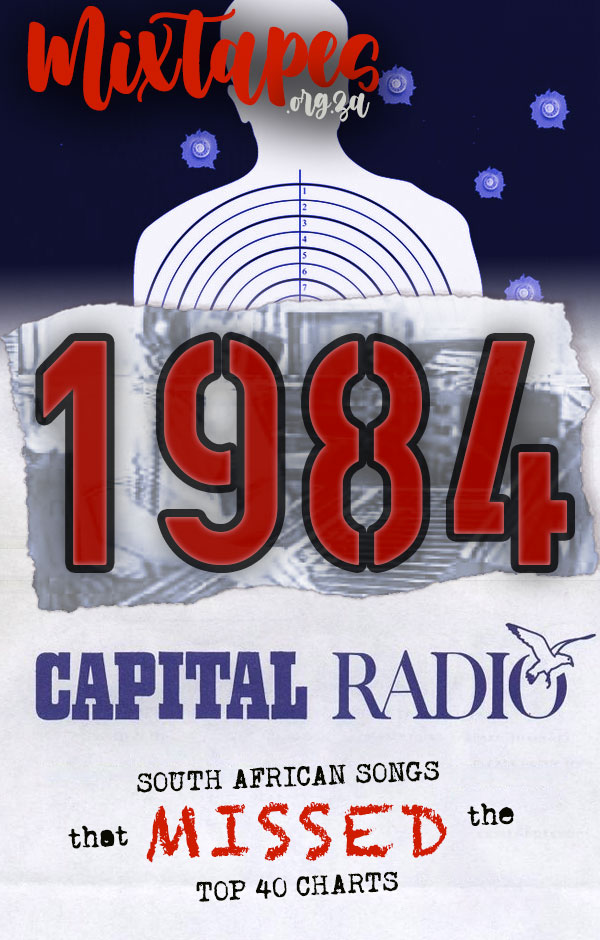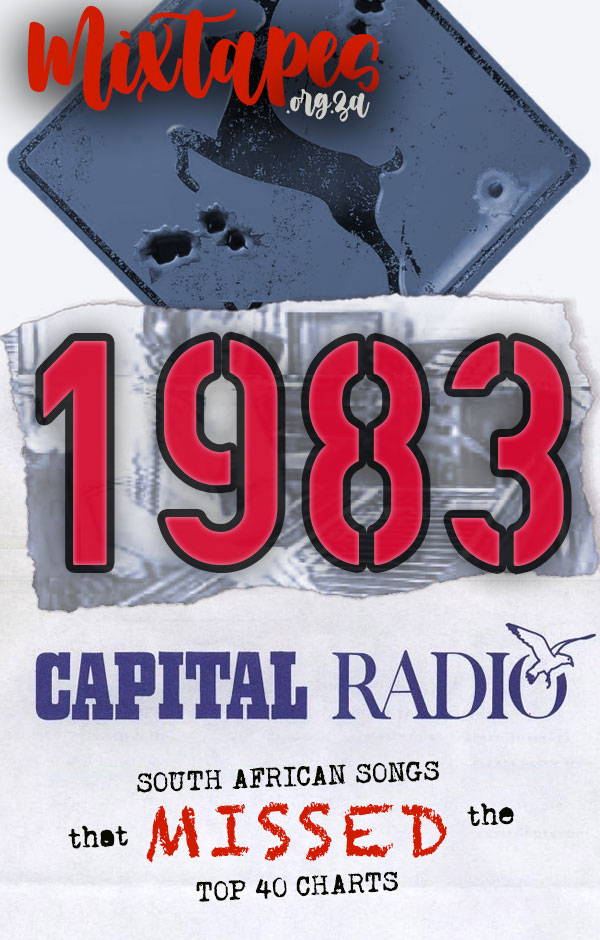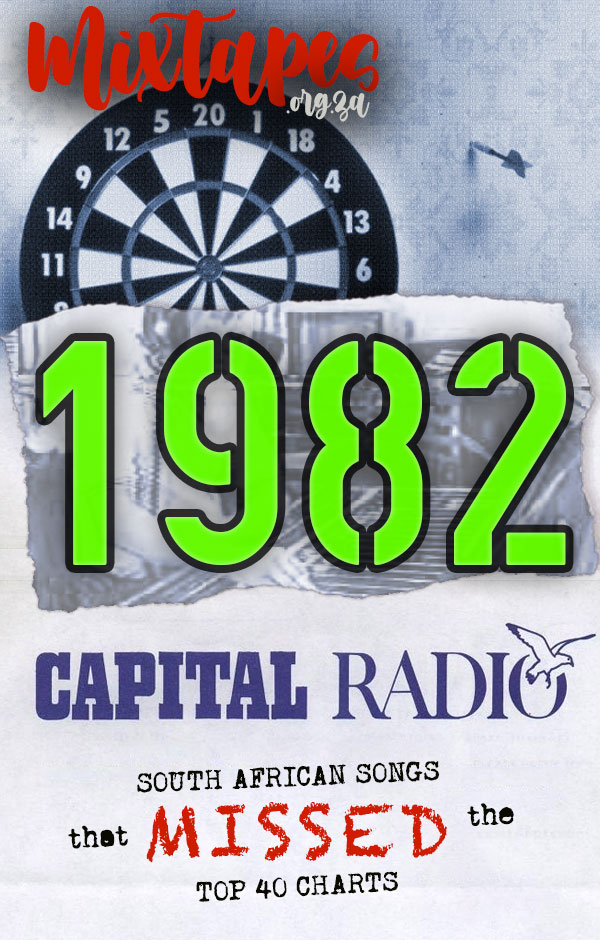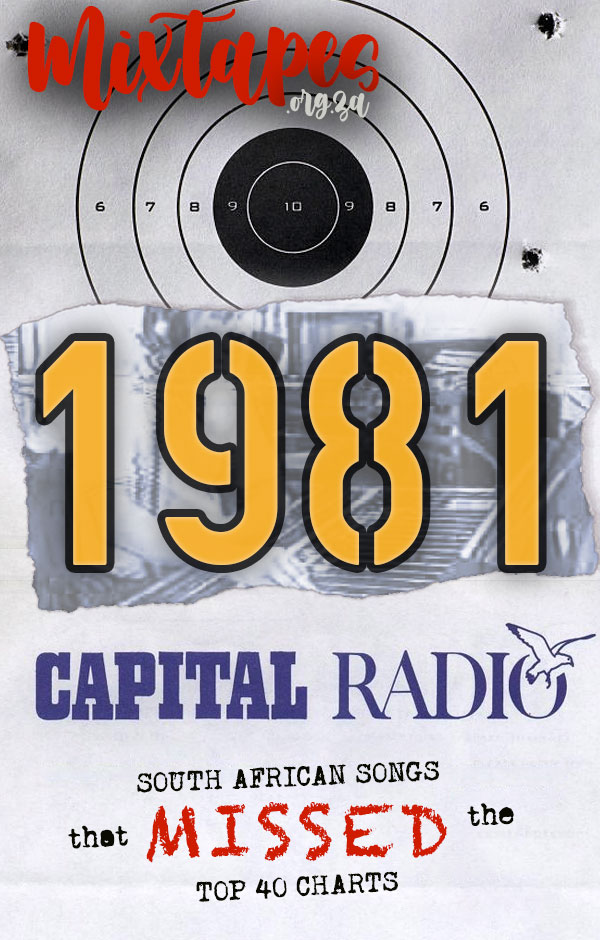
1984 was yet another poor year for South African artists charting on the Capital Radio Top 40 countdown: only nine songs in all. Two bands included in this week’s playlist did chart on Capital’s Top 40: Bright Blue with “Window on the World” and Juluka with “Work For All”.
1984 saw a continuation of some of the themes noted in 1983: there was a steady increase in musicians fusing South African neo-traditional and Western styles of music: Hotline, Juluka and Via Afrika all brought out new albums, eVoid recorded songs possibly for their next album and Bright Blue debuted with their first album. There was also a continuation of the post-punk/new wave scene with songs by Dog Detachment, Niki Daly, The Dynamics and Illegal Gathering. Happy Ships produced the quirky and catchy “Car Hooter” while there were yet again several artists with pop songs based in neo-traditional township forms: Brenda And The Big Dudes, Harari, Joy, Lumumba and Condry Zuqubu, Hugh Masekela, Sankomota and the Soul Brothers. There was also scope for musical styles not often included on our mixtapes thus far: A heavy metal song by Black Rose and Tighthead Fourie & The Loose Forwards contributed the lone country song on this week’s mixtape.
Among the musicians who appear on this week’s playlist there is a reminder of the repressive arm of the apartheid state. The Dynamics, Juluka and Harari were regularly stopped at roadblocks and questioned about people of different race groups travelling together (Harari’s manager was a white woman). Roger Lucey had found it increasingly difficult to find venues at which to perform and broadcasters were not interested in playing his music, and so he changed his name and musical style in an attempt to resurrect his music career. As Tighthead Fourie & The Loose Forwards he hoped to at least get airplay as a country artist. To no avail.
Meanwhile in 1984 Condry Ziqubu had begun to tour in Africa and the USA with Letta Mbulu and Caiphus Semenya, and in 1985 formed the Busa musical with several exiled and South African musicians and they toured several African countries including Nigeria, Burkina Faso, Ethiopia, Libya, Senegal and the ‘frontline’ states of Zambia, Botswana and Zimbabwe. On their return from the tour Ziqubu and the other members of the Busa cast had their passports confiscated and were harassed by the security police.
After releasing their debut album in 1984 Bright Blue were forced to take a two-year hiatus while two of their band members – Dan Heyman and Ian Cohen – underwent conscription against which they were strongly opposed. And while touring South Africa in 1984, eVoid’s drummer – Wayne Harker – was arrested by the Military Police because he had gone AWOL in order to participate in the tour. Former eVoid drummer, Danny De Wet, stepped in so that the tour could continue.
Uhuru were a Lesotho-based band who were banned from entering in South Africa because of their political lyrics (and the band’s name didn’t help). To get around this problem Shifty Records ingeniously took their recording studio to Lesotho (in the Shifty caravan) and recorded the band’s debut album there (it was also the first album Shifty recorded). The band in the meantime changed their name to Sankomota, which made it more likely that the album could be released in South Africa without repressive consequences. In time the band relocated to South Africa and continued to perform and release new music from their new base.
Once again, huge thanks to Marq Vas for helping us source a very hard-to-find track.
Show Playlist + Poll–




